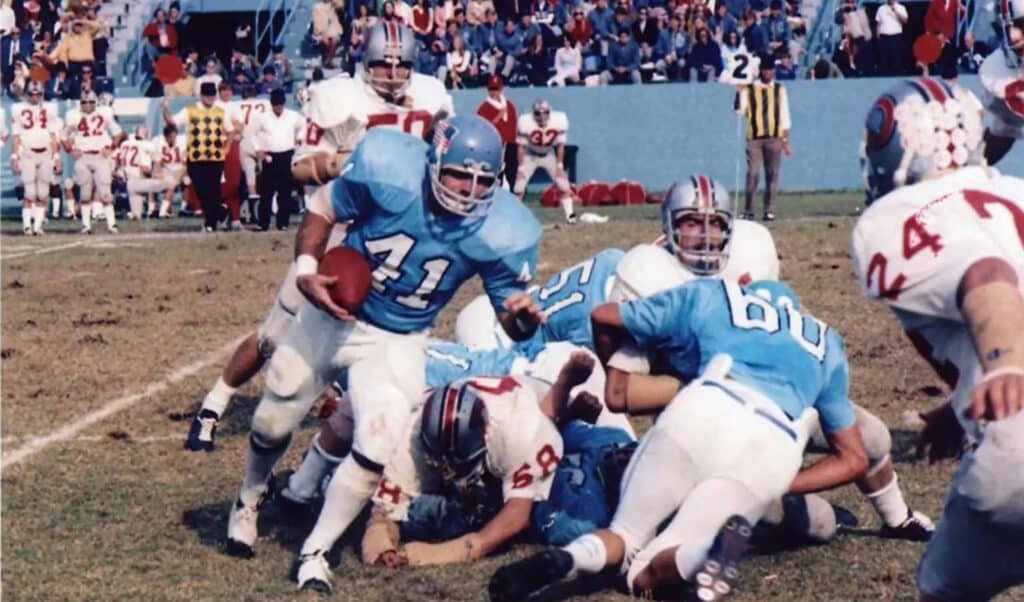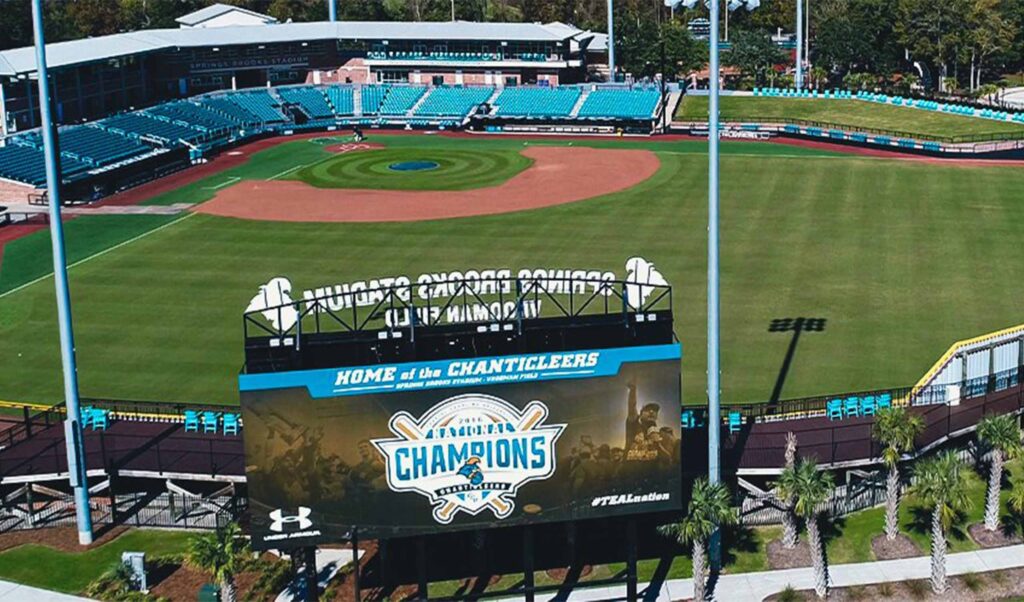An inspiring story from Cassandra King Conroy about her sister, Nancy Jane
If you hear hoofbeats, think zebras, not horses.
In 2010, my youngest sister was diagnosed with what was then known as carcinoid cancer. At fifty-two, Nancy Jane, a dedicated first-grade teacher and church worker involved in numerous community activities, the mother of a college-age son, had always been robustly healthy—until the day a malignant intestinal blockage resulted in the removal of two-thirds of her digestive tract. Her surgeon told the family it was not as bad as it sounded: carcinoid was a slow-growing cancer. With proper care, she could live a “good, long life.” The main problem, carcinoid was rare and most doctors weren’t sure how to treat it.
In order to help my sister deal with this abrupt change in her life, I responded as I always did: by reading everything I could find about the subject. Surprisingly, there wasn’t much; certainly no books by or about patients like my sister. Thankfully I found a national support organization, which proved to be a lifeline. It was there I first heard the carcinoid mantra: If you hear hoofbeats, think zebras, not horses. Not only rare but also unique, carcinoid was the zebra in a field of horses. I was in for a further surprise, one which would prove detrimental to both my and my sister’s emotional wellbeing. Despite evidence to the contrary, her doctors still insisted it was horses they heard. Zebras? Don’t be ridiculous.
I stayed in the hospital with Nancy Jane for most of her month-long recovery, and that’s when I made an appointment for her at the Mayo Clinic in Jacksonville. When my sister’s young oncologist came into her room that morning, I told him about the appointing, thinking he’d be pleased to have such a proactive patient. “The Mayo!” he said, looking genuinely puzzled. “Whatever for?” He then cut me off when I responded because it was a rare and unusual cancer. “Not so rare,” he snorted. “I see it all the time.” Because he’d be caring for my sister, I said nothing but wanted to suggest he let the national organization know. Surely someone would want to fund a study of why all of the few million cases worldwide just happened to end up in his Birmingham, Alabama, office.
Nancy Jane lived almost three years after her surgery; and during that time I drove her to clinics in Jacksonville, Mobile, Baton Rouge, Atlanta and Lexington. Locally, (and after a few other tries), she finally found a more compassionate oncologist, who admitted he’d not seen a case like hers and encouraged her to go wherever she could to seek help. At the time I was living on Fripp Island, South Carolina, a seven-hour drive from my sister’s home in Alabama, but I would’ve taken her to the ends of the earth in search of treatment. In addition, I was a full-time writer, so it was easier for me to get away than other family members or Nancy Jane’s teacher friends. Like all of us with a sick loved one, I wanted desperately to help my sister. Because I’d had so such trouble finding reading material after her diagnosis, I was also determined to write about her struggles one day, and I took a lot of notes, every place we went. The chance finally came. Six years after Nancy Jane’s death, and three years following the death of my husband from pancreatic cancer, I included a couple of chapters about my sister’s cancer journey in my 2019 memoir, Tell Me a Story: My Life with Pat Conroy. The following is an excerpt, which starts in the summer of 2013, when my husband Pat finds me in tears after the call from my sister, telling me about her possible malignancy and the upcoming surgery.
***
Pat didn’t try to make me feel better with platitudes: he just took my hand in his and sat with me. He knew better than anybody how close Nancy Jane and I were. She and I thought so much alike that we practically finished each other’s sentences. We shared the same irreverent humor, same politics, and same spirituality. I’d always been protective of her and knew that was a big part of my despair. I couldn’t protect her from this. No one could. We might say we’d take a bullet for those we love and mean it sincerely, but all the sincerity in the world can’t alter the course of the bullet. The only thing we can do for those we love who are in pain is to be with them, and hold their hand.
By the time I traveled to Birmingham for Nancy Jane’s surgery, I’d fallen back on the comfort of platitudes and had force-fed myself every single one I could think of. An even better metaphor, I grabbed each one that floated by and held onto it like a life preserver. Sitting in the waiting room of St. Vincent’s Hospital with the rest of the family and my sister’s teacher friends, we repeated platitudes to each other ad nauseam, trying to convince ourselves that everything would be fine. After all, they didn’t know for sure it was cancer, right? Lab tests could be wrong. Every one of us knew of someone who’d had such a thing happen, and we told stories of false diagnosis or miraculous healing.
Several hours later than expected, Nancy Jane’s surgeon came out grim faced. They’d found widespread cancer, a rare endocrine kind that no one saw very often. Because the treatment options were so limited, the surgeon had taken out as much of it as he could. Unfortunately the only way to save her had been to remove two-thirds of her intestines. Nancy would survive, the surgeon told the family, maybe even for a few years. But her life would be greatly altered. It would be an ongoing struggle to keep her well.
I’d learn later that her surgeon, a soft-spoken, exceedingly compassionate young man, had taken pity on the family and friends who had to hear such a difficult prognosis, and had softened it as much as possible. I’ll always appreciate that he broke it to us gently, and left us with a glimmer of hope. Several years earlier when my mother had been diagnosed with cancer, her oncologist had walked in and with no preliminary, informed her that nothing could be done. She had six months to live if she was lucky, he added briskly, then walked out. He didn’t get far. I stormed after him and suggested he either change his bedside manner or his profession. (I heard later that he did the latter.)
My sister lived in a small town about an hour from Birmingham where she had a wonderful support group. She returned home after a month’s stay in St. Vincent’s, and her friends went into full swing. Nancy Jane was spunky and hard-headed, as I well knew, traits that would serve her well in her recovery. She was already planning her return to teaching, as soon as the doctors gave her the go-ahead. Knowing my sister was in good hands, I understood it was time for me to go home. I’d spent most of July at the hospital, sleeping on a plastic bench a few feet from her bed. I was determined to put up a brave front when I left, but I caved in as we hugged goodbye. She felt so fragile.
“I wish to God it’d been me,” I told her in a choked voice. The old Nancy Jane would’ve said, “Me, too,” and we would’ve laughed together. Instead she blinked back tears to say, “It would’ve killed me, either way.”
It’s so true, I thought as I walked to my car. Whether it’s from physical pain or mental anguish, watching someone you love suffer is a killing thing.
***
Nancy Jane survived her first year much better than anyone could’ve imagined, and her doctors were cautiously optimistic. I constantly researched doctors and clinics in order to find help. We’d go to any that offered a shred of hope: endocrine specialists at the Mayo as well as clinics in Mobile, Atlanta, Baton Rouge, and Lexington. Each trip, Nancy Jane and I drove off singing “We’re off to see the wizard, the wonderful wizard of Oz.” There’s no cure for carcinoid, the kind of cancer she had, but it’s manageable. Slow-growing, it doesn’t respond to conventional treatment. Good news, she wouldn’t lose her hair; bad news, chemo doesn’t work. My sister’s only hope was to stay alive long enough for a treatment to be found.
Nancy Jane was always up for a trip, and we’d traveled together a lot before she got sick. Neither the Mayo Clinic nor Emory Cancer Center had ever made our list of go-to places, however. Our first stop at Adventures in Cancer-Land (Nancy Jane’s humor, not mine. I like to think I’m not quite that morbid) was the Mayo Clinic in Jacksonville, FL. Although we always started out on our trips full of hope and good cheer, we rarely returned that way. Nancy Jane was so determinedly upbeat that it shamed me when each disappointment hit me so hard. So many times, I’d rave to her about a new clinic, how great they were and how much hope they’d offered, only to dissolve in helpless tears as soon as I got back to South Carolina. I knew it wasn’t her I was trying to convince; it was me. Every time I returned home from one of the quests, I’d find Pat waiting for me, hoping to hear that we’d finally found the Wizard. He’d take one look at my face and hold out his arms. During those times, a shoulder to cry on was the only thing he or anyone else could offer.

